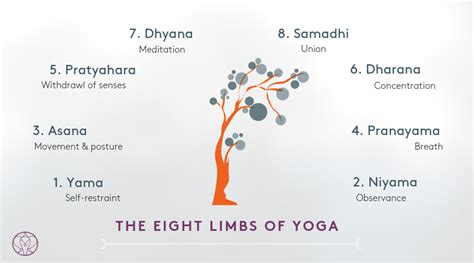Yoga’s Insights Into Moral Philosophy: A Deep Dive into Ethical Lessons
Introduction
Yoga, widely recognized for its physical and mental benefits, also offers profound insights into moral philosophy. Beyond the postures and meditative practices, yoga encompasses a holistic worldview that integrates ethical principles deeply rooted in ancient wisdom. In this article, we explore how yoga’s teachings provide a framework for moral philosophy, addressing ethical dilemmas, practical morality, and the connection between individual actions and collective well-being.
Key Concepts
Before diving into the broader discussion, it’s important to define some core yoga concepts that will frame our understanding of its moral philosophy:
- Yamas and Niyamas: These are ethical guidelines in the yoga tradition that provide a moral foundation. The Yamas focus on personal restraints, like non-violence (Ahimsa) and truthfulness (Satya), while the Niyamas prescribe positive behaviors like cleanliness (Saucha) and contentment (Santosha).
- Karma: The law of cause and effect, where every action leads to consequences, influencing moral behavior by encouraging mindful and ethical choices.
- Dharma: A concept of duty and righteousness, emphasizing the moral obligations one holds in various aspects of life.
- Ahimsa: Non-harm or non-violence, considered the highest principle in yoga, with implications for both physical and emotional conduct.
Historical Context
The roots of yoga’s moral philosophy trace back over 5,000 years, with its origins found in the ancient spiritual traditions of India, particularly in the Vedas and Upanishads. These texts provided the philosophical foundations for both yoga and Indian ethics. Yoga’s ethical principles were codified in Patanjali’s Yoga Sutras, a seminal text written in the 2nd century BCE, which articulated the eightfold path of yoga, where moral conduct is emphasized before one even embarks on physical postures or meditation.
Over time, yoga’s ethical teachings were integrated into broader philosophical discussions in both Hindu and Buddhist contexts. The emergence of the Bhagavad Gita also contributed significantly to moral philosophy, emphasizing the importance of Dharma and the need for action that aligns with universal moral laws.
Current State Analysis
In contemporary society, yoga is often viewed as a physical or stress-relief practice, with its philosophical and moral dimensions underappreciated. However, modern interpretations of yoga, particularly in the West, have begun to acknowledge its ethical framework. The Yamas and Niyamas have been increasingly referenced in discussions about social justice, environmental ethics, and personal integrity. Yoga studios around the world are adopting initiatives that reflect these values, such as promoting sustainable practices or encouraging non-competitive environments.
However, a challenge lies in the commercialization of yoga, where ethical teachings risk being diluted in favor of appealing to consumer desires. This tension between traditional yoga’s philosophical roots and its modern-day expression poses critical questions about authenticity, integrity, and the ethics of commodification.
Practical Applications
Yoga’s ethical teachings have real-world implications, providing a practical guide for moral decision-making in everyday life. Here’s how the core principles translate into practical applications:
- Ahimsa (Non-Violence): This principle extends beyond physical harm to include emotional and psychological harm. Practicing Ahimsa means actively fostering compassion in personal relationships and avoiding harm in professional and social settings. Example: Avoiding manipulative or aggressive behavior in business negotiations.
- Satya (Truthfulness): Integrity and honesty are central to moral decision-making. In a professional context, practicing Satya might involve transparent communication with colleagues and clients, ensuring that no information is withheld for personal gain.
- Santosha (Contentment): In a consumer-driven world, practicing contentment encourages mindfulness about material desires. Example: Adopting minimalist lifestyle choices, resisting unnecessary consumption, and focusing on gratitude.
Case Studies
To illustrate yoga’s influence on moral philosophy, let’s explore several case studies:
| Case Study | Ethical Challenge | Yoga Principle Applied |
|---|---|---|
| Environmental Activism | Should an individual sacrifice convenience for sustainable practices? | Ahimsa: Reducing harm to the planet through eco-conscious decisions. |
| Corporate Leadership | How does a CEO balance profit with ethical responsibility? | Satya: Transparency and honesty in corporate governance. |
| Workplace Competition | Is aggressive competition justifiable in a capitalist society? | Asteya: Non-stealing—ensuring fairness and integrity in professional conduct. |
| Consumerism | How can individuals avoid excessive consumption? | Santosha: Contentment and mindful consumption. |
Stakeholder Analysis
Yoga’s moral philosophy considers the impact of individual actions on various stakeholders, from the self to society and the environment. Here’s a breakdown of key stakeholders influenced by yoga’s ethical principles:
- Individuals: Personal ethics and decision-making are shaped by the Yamas and Niyamas, which foster self-awareness and intentional living.
- Communities: Yoga teaches interconnectedness, promoting social responsibility and encouraging individuals to consider the collective well-being.
- Businesses: Corporate social responsibility aligns with yoga’s principles of fairness, non-harm, and transparency, encouraging ethical business practices.
- Environment: The principle of Ahimsa reinforces a commitment to sustainability, promoting actions that minimize environmental harm.
Implementation Guidelines
To effectively implement yoga’s moral philosophy in modern life, several steps can be taken:
- Education: Raising awareness of the ethical dimensions of yoga through workshops, courses, and community discussions.
- Practice: Encouraging individuals to integrate the Yamas and Niyamas into their daily lives, making ethical reflection a routine practice.
- Policy: Encouraging organizations to adopt ethical frameworks inspired by yoga, such as non-violence in marketing practices or transparency in financial reporting.
- Collaboration: Fostering partnerships between yoga communities, businesses, and environmental groups to promote ethical action.
Ethical Considerations
Yoga’s moral philosophy is not without its ethical challenges. One such issue is the potential for cultural appropriation, where yoga is stripped of its cultural and spiritual significance in favor of commodified versions. Moreover, ethical concerns arise in the business of yoga itself—how studios, teachers, and companies represent the practice and whether their actions align with yoga’s principles.
Another consideration is the balance between personal moral obligations and collective ethical action. While yoga encourages self-reflection, it also emphasizes interconnectedness and the broader impact of individual actions. Striking this balance is crucial for ethical decision-making.
Limitations and Future Research
Despite its rich ethical framework, yoga’s moral philosophy faces limitations in its practical application in the modern world. For one, the abstract nature of concepts like Karma and Dharma can be difficult to interpret in concrete terms, leading to potential ambiguity. Additionally, there’s a need for more empirical research into how yoga’s principles can be systematically applied in fields such as business ethics, environmental policy, and social justice.
Future research could explore:
- How yoga’s ethical principles influence leadership styles and corporate ethics.
- Case studies on yoga’s impact in social movements and activism.
- The integration of yoga’s moral philosophy into public policy, particularly around sustainability.
Expert Commentary
As we conclude this exploration of yoga’s contributions to moral philosophy, experts in both yoga and ethics emphasize that yoga’s true value lies not just in its theoretical teachings but in the lived experience of practicing ethical principles daily. Through its focus on mindfulness, non-violence, and truthfulness, yoga offers a robust moral compass for navigating complex ethical dilemmas in a world that often values profit over people and








